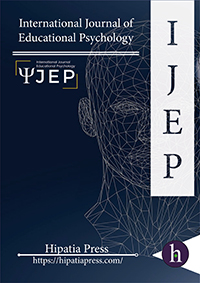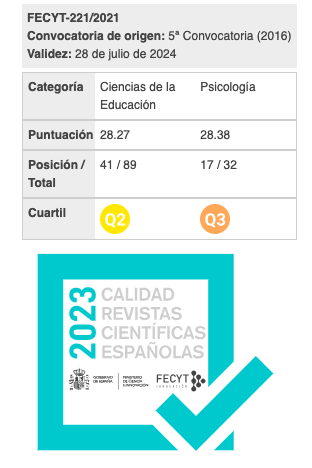Cooperative Learning: Developments in Research
Keywords:
Downloads
Abstract
Cooperative learning is widely recognized as a pedagogical practice that promotes socialization and learning among students from kindergarten through to college level and across different subject areas. Cooperative learning involves students working together to achieve common goals or complete group tasks. Interest in cooperative learning has grown rapidly over the last three decades as research has been published that clearly demonstrates how it can be used to promote achievements in reading and writing, conceptual development in science, problem-solving in mathematics, and higher level thinking and reasoning. It has also been shown to promote inter-personal relationships with students with diverse learning and adjustments needs and with those from culturally and ethnically different backgrounds. In fact, Johnson and Johnson (2000)argue there is no other pedagogical practice that achieves such outcomes. The purpose of this paper is to review the research on cooperative learning and to examine the factors that contribute to its success. In particular, the review focuses on the key elements that underpin successful cooperative learning, including group structure, composition and task, and the key role teachers’ play in developing students’ thinking and learning. The intention is to provide insights on how teachers can effectively utilize this pedagogical approach to teaching and learning in their classrooms.Downloads
References
Allen, V. (I976). Children helping children: Psychological processes in tutoring. In J. Levin and
Google Scholar CrossrefV. Allen (Eds.), Cognitive learning in children: Theories and strategies (pp. 241-299). NewYork: Academic Press.
Google Scholar CrossrefBertucci, A., Conte, S., Johnson, D., & Johnson, R. (2010). The impact of size of cooperative
Google Scholar Crossrefgroup on achievement, social support, and self-esteem. The Journal of General Psychology, 137, 256-272.
Google Scholar CrossrefCohen, E. (1994). Restructuring the classroom: Conditions for productive small groups. Review
Google Scholar Crossrefof Educational Research, 64, 1-35.
Google Scholar CrossrefDamon, W. (1984). Peer education: The untapped potential. Journal of Applied
Google Scholar CrossrefDevelopmental Psychology, 5, 331-343.
Google Scholar CrossrefGartner, A., Kholer, M., & Riesman, F. (1971). Children teach children: Learning by teaching.
Google Scholar CrossrefNew York: Harper & Row.
Google Scholar CrossrefGillies, R. (2011). Promoting thinking, problem-solving, and reasoning during small group
Google Scholar Crossrefdiscussions. Teachers and Teaching: Theory and Practice, 17, 73-89.
Google Scholar CrossrefGillies, R. (2008). The effects of cooperative learning on junior high school students’
Google Scholar Crossrefbehaviours, discourse and learning during a science-based learning activity. School Psychology International, 29, 328-347
Google Scholar CrossrefGillies, R. (2006). Teachers’ and students’ verbal behaviours during cooperative and small-group
Google Scholar Crossreflearning. British Journal of Educational Psychology, 76, 271-287.
Google Scholar CrossrefGillies, R. (2004). The effects of cooperative learning on junior high school students during small group learning. Learning and Instruction, 14, 197- 213.
Google Scholar CrossrefGillies, R. (2003). The behaviours, interactions, and perceptions of junior high school students during small-group learning. Journal of Educational Psychology, 95, 137-147.
Google Scholar CrossrefGillies, R. & Haynes, M. (2011). Increasing explanatory behaviour, problem-solving and reasoning within classes using cooperative group work. Instructional Science, 39, 349-366.
Google Scholar CrossrefGillies, R., & Khan, A. (2008). The effects of teacher discourse on students’ discourse, problem-solving and reasoning during cooperative learning. International Journal of Educational Research, 47, 323-340.
Google Scholar CrossrefGillies, R., & Khan, A. (2009). Promoting reasoned argumentation, problem-solving and learning during small-group work. Cambridge Journal of Education, 39, 7-27.
Google Scholar CrossrefGillies, R., Nichols, K., Burgh, G., & Haynes, M. (2012). The effects of two meta-cognitive questioning approaches on children’s explanatory behaviour, problem-solving, and learning during cooperative, inquiry-based science. International Journal of Educational Research, 53, 93-106.
Google Scholar CrossrefHattie, J. (2009). Visible learning: A synthesis of over 800 meta-analyses relating to achievement. London: Routledge.
Google Scholar CrossrefHertz-Lazarowitz, R. (1989). Cooperation and helping in the classroom: A contextual approach. International Journal of Educational Research, 13, 113-119.
Google Scholar CrossrefHertz-Lazarowitz, R., & Shachar, H. (1990). Teachers’ verbal behavior in cooperative and whole-class instruction (pp. 77-94). In S. Sharan (Ed.), Cooperative learning: Theory and research. New York: Praeger.
Google Scholar CrossrefHowe, C. (2013). Optimizing small group discourse in classrooms: Effective
Google Scholar Crossrefpractices and theoretical constraints. International Journal of Educational Research, 63, 107-115.
Google Scholar CrossrefHowe, C. (2009). Collaborative group work in middle childhood. Human Development, 52, 215-
Google Scholar CrossrefGoogle Scholar Crossref
Johnson, D., & Johnson, R. (2002). Learning together and alone: Overview and meta-analysis.
Google Scholar CrossrefAsia Pacific Journal of Education, 22, 95-105.
Google Scholar CrossrefJohnson, D., & Johnson, R. (2000). Cooperative learning, values, and culturally plural
Google Scholar Crossrefclassrooms. In. M. Leicester, C. Modgil, & S. Modgil (Eds.), Classroom issues: Practice, pedagogy and curriculum (pp 15-28). Palmer Press: London.
Google Scholar CrossrefJohnson, D., Johnson, R., Stanne, M., & Garibaldi, A. (1990). Impact of group processing on
Google Scholar Crossrefachievement in cooperative groups. The Journal of Social Psychology, 130, 504-516.
Google Scholar CrossrefJohnson, D., Maruyama, G., Johnson, R., Nelson, D., &Skon, L. (1981). Effects of cooperative,
Google Scholar Crossrefcompetitive, and individualistic goal structures on achievement: A meta-analysis. Psychological Bulletin, 89, 47-62.
Google Scholar CrossrefLou, Y., Abrami, P., Spence, J., Poulsen, C., Chambers, B., & d’Apollonia, S. (1996). Within-class grouping: A meta-analysis. Review of Educational Research, 66, 423-458.
Google Scholar CrossrefLou, Y., Abrami, P., & d’Apollonia, S. (2001). Small group and individual learning with technology: A meta-analysis. Review of Educational Research, 71, 449-521.
Google Scholar CrossrefPai, H., Sears, D., & Maeda, Y. (2014). Effects of small-group learning on transfer: A meta-
Google Scholar Crossrefanalysis. Educational Psychology Review. DOI 10.1007/s10648-014-9260-8
Google Scholar CrossrefRoseth, C., Johnson, D., & Johnson, R. (2008). Promoting early adolescents’ achievement and
Google Scholar Crossrefpeerrelartionships: The effects of cooperative, competitive, and individualistic goal structures. Psychological Bulletin, 134, 223-246.
Google Scholar CrossrefShachar, H., & Sharan, S. (1994). Talking, relating, and achieving: Effects of cooperative
Google Scholar Crossreflearning and whole-class instruction. Cognition and Instruction, 12, 313-353.
Google Scholar CrossrefSharan, S., &Shaulov, A. (1990). Cooperative learning, motivation to learn, and academic
Google Scholar Crossrefachievement (pp.77-94). In S. Sharan (Ed.). Cooperative learning: Theory and research. Praeger: New York.
Google Scholar CrossrefSlavin, R. (2013). Effective programmes in reading and mathematics: Evidence from the Best
Google Scholar CrossrefEvidence Encyclopedia. School Effectiveness and School Improvement, 24, 383-391.http://dx.doi.org/10.1080/09243453.2013.797913
Google Scholar CrossrefSlavin, R. (1996). Research on cooperative learning and achievement: What we know, what
Google Scholar Crossrefwe need to know. Contemporary Educational Psychology, 21, 43-69.
Google Scholar CrossrefSlavin, R., & Lake, C. (2008). Effective programs in elementary mathematics: A best evidence
Google Scholar Crossrefsynthesis. Review of Educational Research, 78, 427-515.
Google Scholar CrossrefSlavin, R., & Cooper, R. (1999). Improving intergroup relations: Lessons learned from
Google Scholar Crossrefcooperative learning programs. Journal of Social Issues, 55, 647-663.
Google Scholar CrossrefStevens, R., & Slavin, R. (1995a). The cooperative elementary school: Effects on students’
Google Scholar Crossrefachievement, attitudes, and social relations. American Educational Research Journal, 22, 321-351.
Google Scholar CrossrefStevens, R., &Slavin, R. (1995b). Effects of a cooperative learning approach in reading and
Google Scholar Crossrefwriting on academically handicapped and non handicapped students.The Elementary School Journal, 95, 241-262.
Google Scholar CrossrefThurston, A., Topping, K., Tolmie, A., Chrristie, D., karagiannidou, E., & Murray, P. (2010).
Google Scholar CrossrefCooperative learning in science: Follow-up from primary to high school. International
Google Scholar CrossrefJournal of Science Education, 32, 501-522.
Google Scholar CrossrefDownloads
Published
Almetric
Dimensions
How to Cite
Issue
Section
License
All articles are published under Creative Commons copyright (CC BY). Authors hold the copyright and retain publishing rights without restrictions, but authors allow anyone to download, reuse, reprint, modify, distribute, and/or copy articles as the original source is cited.
















